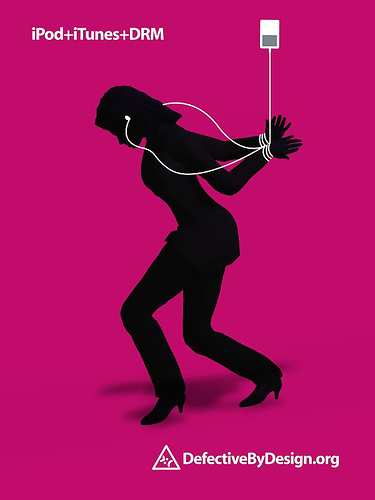
The Economist gives us a sober and reasonable editorial on the issue of Digital Rights Management (DRM) more commonly known as copy-protection. Here is an excerpt:
Belatedly, music executives have come to realise that DRM simply doesn’t work. It is supposed to stop unauthorised copying, but no copy-protection system has yet been devised that cannot be easily defeated. All it does is make life difficult for paying customers, while having little or no effect on clandestine copying plants that churn out pirate copies….
While most of today’s DRM schemes that come embedded on CDs and DVDs are likely to disappear over the next year or two, the need to protect copyrighted music and video will remain. Fortunately, there are better ways of doing this than treating customers as if they were criminals.
One of the most promising is Audible Magic’s content protection technology. Google is currently testing this to find the “fingerprints†of miscreants who have posted unauthorised television or movie clips on YouTube.
The beauty of such schemes is that they don’t actually prevent anyone from making copies of original content. Their purpose is simply to collect royalties when a breach of copyright has occurred. By being reactive rather than pre-emptive, normal law-abiding consumers are then
left in peace to enjoy their music and video collections in any way they choose. Why couldn’t we have thought of that in the beginning?
Tech.view | Criminalising the consumer | Economist.com
Meanwhile, the RIAA just keeps getting more and more creative in their pursuit of their criminalized customers. Here is a /. story about their latest exploits:
In an attempt to change the rules of the game, the RIAA secretly went to a federal district court in Denver with an ex parte application. The goal was to get the judge to rule that the federal Cable Communications Policy Act does not apply to the RIAA’s attempts to get subscriber information (pdf) from cable companies. Just to clarify, ex parte means that the application was secret, no one else — neither the ISP nor the subscribers — were given notice that this was going on. They were, in effect, asking the Court to rule that the RIAA does not need to get a court order to be able to force an ISP to disclose confidential subscriber information. The Magistrate Judge declined to rule on the issue (pdf), but did give them the ex parte discovery order they were looking for.
Slashdot | RIAA Secretly Tries to Get ISP Subscriber Info

Pingback: Dr. M (1990) | Old Old Films